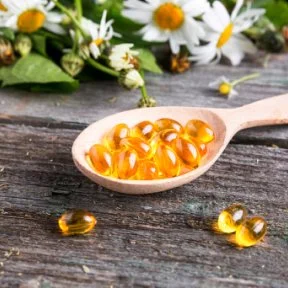
EMBARKING ON A WHOLE FOOD, PLANT-BASED DIET
OTHER MICRONUTRIENTS
Zinc
It is composed of over 300 enzymes. It takes part in the process of growth, transformation of proteins, fats, carbohydrates and energy transformations. It is necessary for the production and functioning of hormones such as insulin, thyroxine and testosterone.
Plant Based Sources include - beans, chickpeas, lentils, tofu, walnuts, cashew nuts, chia seeds, ground linseed, hemp seeds, pumpkin seeds, wholemeal bread and quinoa.
Iodine
It is necessary for the production of thyroid hormones which regulate the metabolism, protein and enzyme synthesis, growth processes, conversion of carbohydrates and vitamins. Iodine is also responsible for the proper development of the brain, nervous system, muscles, heart and kidneys, and is essential in maintaining body temperature.
Plant Based Sources include - Seaweed (nori, kelp, kombu, wakame). Other sources are wholegrains, green beans, courgettes, kale, spring greens, watercress, strawberries and organic potatoes with skin. However, the amounts are variable depending on how much iodine is in the soil where the food is grown.
Vitamin A
Vitamin A is an extremely important vitamin that is essential for the functioning of our body. It plays a large part in the process of vision, influences and regulates the growth of various cells in the body. In addition; it has anti-cancer properties, protects the respiratory system against microorganisms, strengthens the immune system, prevents infections, helps fight bacteria and viruses, maintains the proper condition of skin, hair and nails, and also affects the proper functioning of cell membranes.
Folic acid
Folic acid is essential for the proper functioning of the body, especially in the circulatory and nervous systems. Folic acid is involved in the synthesis of our RNA and DNA. In addition, folates are built into red blood cell stem cells, which protects against anaemia. Folic acid is necessary for the proper functioning of the nervous system by influencing the formation of neurotransmitters such as dopamine and adrenaline. Vitamin B9 deficiency can cause neuropsychiatric disorders, which include, for example, depression or psychosis
Plant Based sources of folic acid include - nutritional yeast, soya products (edamame, tempeh – fermented soya beans, soya milk and tofu), green vegetables (asparagus, Brussel’s sprouts, spinach, kale, white cabbage, pak choi, rocket, broccoli, lettuce and peas), yeast extract – Marmite and Vegemite, red pepper, fortified breakfast cereal, oranges, beetroot, lentils, acorn squash, wheat germ, sweetcorn, muesli, cherry tomatoes and hazelnuts.
Magnesium
Magnesium is essential for nerve and muscle function, a healthy immune system, steady heartbeat and strong bone structure. It is involved in protein biosynthesis, nerve conduction, muscle contractility, thermoregulation, metabolism, bone mineralization and blood pressure regulation.
Plant-Based Sources of magnesium include - wholegrain foods (quinoa, wholemeal spaghetti, wholegrain rice, oatmeal or rolled oats and wheat germ), nuts (Brazil nuts, almonds, cashew nuts, hazelnuts, walnuts, pecans, pistachios, peanuts and peanut butter), seeds (pumpkin seeds, sunflower seeds, sesame seeds and tahini – sesame seed paste) pulses (tofu, baked beans, soya beans, edamame and lentils), spinach, molasses – black treacle, soya milk and cocoa powder
Vitamin E
Vitamin E is an important antioxidant and its main function is in protecting cell membranes from oxidation and damage. As such it helps to keep our blood vessels and eyes – healthy and is essential for healthy skin and immune system.
It is called the vitamin of youth. Vitamin E delays the ageing process of the skin, nourishes it, moisturises, regenerates it, visibly improving its condition.
It’s also important for fertility - In women, it supports ovulation and the proper development of the foetus. In men, it affects the production of sperm and hormone production, and supports blood circulation.
Plant Based sources of vitamin E include - Plant oils and spreads (wheat germ oil, sunflower oil, safflower oil, rapeseed oil, corn oil, soya oil, peanut/groundnut oil, margarines and spreads). Nuts and seeds (hazelnuts, almonds, sunflower seeds, peanuts, peanut butter and pistachios), avocado, butternut squash, mango, broccoli, spinach and kale.
Vitamin C
Vitamin C is primarily responsible for the proper functioning of the immune system, as well as the circulatory system. One of the most important functions of vitamin C is the stimulation of collagen synthesis so it helps with tissue reconstruction during wound healing. Vitamin C also regulates blood pressure and helps maintain healthy gums
Plant-Based Sources of vitamin C include -Fruits and vegetables are the best sources of this vitamin. e.g. blackcurrants, pepper (red and green), kale, papaya, spring greens, cranberry juice, strawberries, Brussels sprouts, broccoli, cabbage, cantaloupe melon, kiwi, grapefruit, mango, oranges, watercress, raspberries, tomatoes, cauliflower, potatoes, pineapple
B vitamins
B vitamins are primarily necessary for the use of energy from food, the proper functioning of the nervous system, the production of red blood cells, and the maintenance of good condition of the skin.
Plant Based Sources of vitamins from B group include - Tempeh , peanuts and peanut butter, hazelnuts, almonds, walnuts, pecans and pistachios, muesli, nutritional yeast, oatmeal or rolled oats, mushrooms, avocado, sunflower and sesame seeds, tahini, fortified breakfast cereals and wheat germ
Vitamin B12
comes from the bacteria that live in the soil, but because of our hygienic lifestyles (our ancestors obtain B12 from natural spring, stream and well water, unwashed vegetables) those microorganisms are destroyed, hence the need for supplementation. Animal products provide vitamin B12 because supplements are added to the feeds of the factory-farmed animals or they obtain it directly from soil. Supplementing B12 is a result of modern lifestyle
Vitamin D
Is made from cholesterol in the skin. That means you need to expose lots of skin to the sunlight to make enough. At noon, the sun is at its highest point, and its UV rays are most intense. That means you need less time in the sun to make sufficient vitamin D.
In Singapore to get an adequate amount of vitamin D you need to get sun exposure on their arms and legs for about 20 minutes 3 times a week.
Skin colour is a factor when absorbing vitamin D - People with darker skin need more sun exposure to generate Viatmin D, about 30 min in sun 4 times a week. This means that people with dark skin can be more at risk of a vitamin D deficiency.
Vitamin D deficiency is more common in the elderly.
Vitamin D deficiency is a major cause of osteoporosis (not lack of calcium) and also poor immune systems (sunlight and vitamin D are critical in immune function)
Omega 3
Plant-based sources - walnuts, flaxseeds, chia seeds, soybeans, edamame, seaweed, and algae.
Fish oils are often used as supplements. fish do not make omega 3, they eat algae with it and store it in their livers. Unfortunately, heavy metals like mercury from polluted oceans are also stored in the liver
Getting the right balance between omega-3 and omega-6 fats is more important than supplementing. Most cooking oils are refined and have too much Omega 6 and too little omega 3
Omega 3 supplementation (algae source) of about 300 mg per day or a teaspoon of flax seeds per day can be considered but not yet scientifically proven to be beneficial











